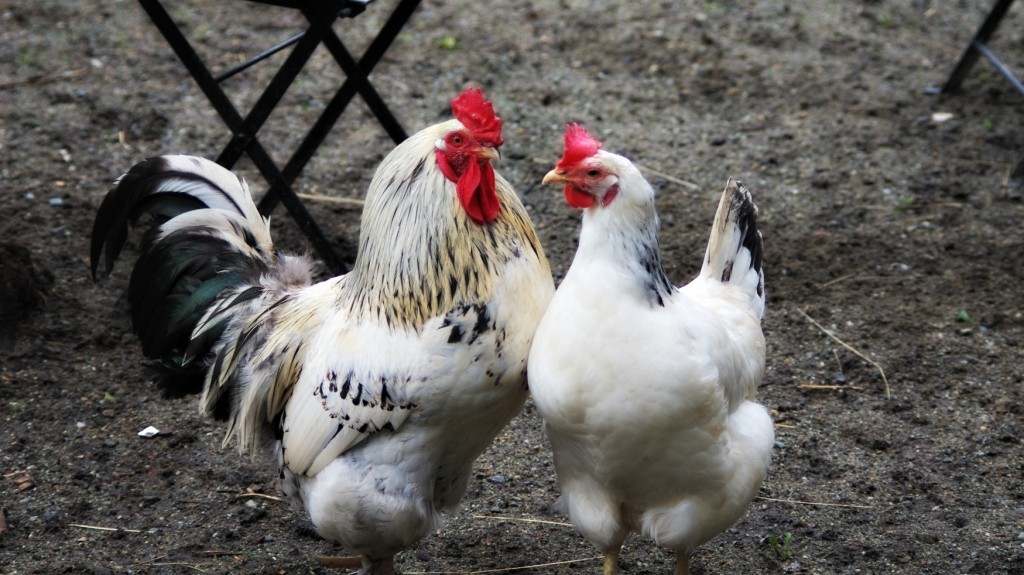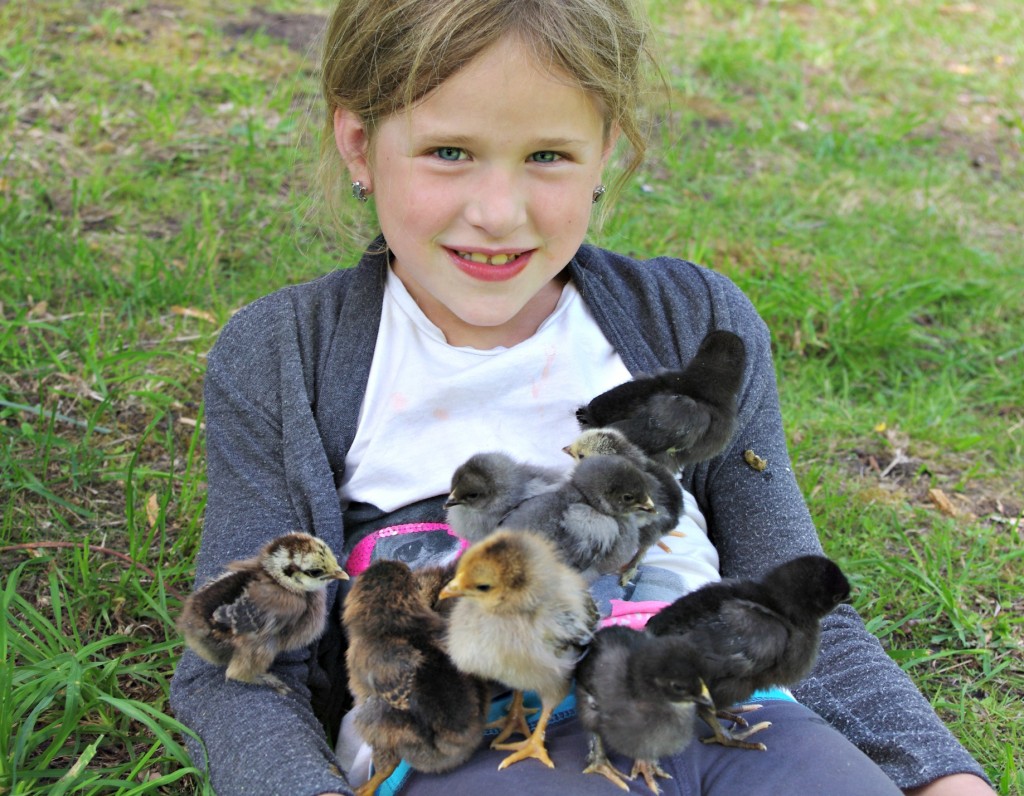From one crazy chicken lady to another in the making, there are a few things a person should know BEFORE they hatch their first egg. . . or get their first hen. I can never remember which came first.
1. Do hens need a rooster
No, you do not need a rooster for a hen to lay eggs, just like women don’t need a man around to ovulate. An egg naturally occurs in a hen when they come to age, about 22 weeks for most. Roosters ARE good for protecting for your flock though, and warning the hens of predators. They also ensure that all their ladies have enough food, and will sacrifice their own health and safety for the health of a hen.
2. What happens to your eggs when you DO have a rooster?
If a rooster is mounting your hens, your hens will lay fertilized eggs. There is no obvious difference to THESE eggs as to unfertilized eggs. A hen would need to sit on an egg and warm up for true “fertilization” to occur. Each egg laid, when their is a rooster in the house, does have the POTENTIAL to be hatched into a chick.
3. How Noisy Are Hens
Hens are relatively quiet, even roosters aren’t that bad if you have a bit of space for them. The worst part of the day is when you have a noisy hen who does her “egg call” This is 10x worse when her rooster responds. Other than the daily egg (or not even) egg call, your hens will cluck and “flutter” about if distressed.
(check out this video of an “egg call and response”)
4. Are roosters REALLY that noisy? Each roosters crow is unique to him. We have 4 on our property and can tell each one apart. A rooster will crow frequently in the morning on waking, and then throughout the day either in response to other roosters, or as his mighty will see fits to shout his masculinity from the roof tops. Roosters will also “cluck”at their hens, calling them for tasty tidbits he may have found. I don’t mind the rooster calls, except they always seem to do it directly under my window and as soon as I pick up a call. (check out this video of a standard rooster crow)
5. What is the BEST breed of chicken to get.
Out of the hundreds (or thousands) of breeds available to you, that is like asking which apple tastes the best- it depends on what you want it for.
If you are wanting laying hens, make that a priority – look for standard hens, and choose them based on their egg colour and size. We love our French Maran and her dark brown spotted egg, and Aracauna or Americana eggs are a beautiful blue/green colour.
If you want “pet” chickens, again, it is personal taste that will drive you to a breed. I am a huge fan of chubby cochins with their “bustle” style rump, while my hubby likes to collect strange breeds like the Fayoumi, Frizzle, Polish and White Faced Spanish. The kids, (of course) love the bantams as they are easy to catch and snuggle. Remember, the more exotic the breed, the more feathering, and such, the more effort you may need to put into maintaining them.
6. What can go wrong?
Everything. Everything can go wrong. Just like with ANY animal, the worst CAN happen. Here are a few of the things we have needed to deal with for our flock in 2 years:
- Egg Bound – hens can get an egg “stuck” this usually means a swift death for them (within 48hrs) unless you “sweep” their vent, or take them to the vet if that is too icky. Most often this is not caught soon enough to be resolved and the result is a dead chicken (and one less egg)
- Disease Spreading Wild Birds: all those cute little birds in your garden can actually be disease carrying murderers to your chicken flock. Wild birds spread a whole RANGE of avian diseases, most of which your chickens are susceptible too. Unfortunately, catching one of these diseases can mean the end to your entire flock in the efforts to control the spread. Check out some of the strange diseases we have experienced here, here and here.
- The “cull” : whether it is because you have one too many roosters in your flock, or a sick hen, or an infectious disease, you need to walk into chickens prepared to cull as required. Having your vet come by and “put them all to sleep” is NOT going to happen, so either sharpen your axe, or make friends with a farmer (and stock the shelf with strong whiskey) As a note here – we have found the best way is not actually with an axe (they flop too much) but with a pair of secateurs (root cutters). Keep em sharp, and they are swift and controlled in their cut.
- Broody Hens: some of your breeds will go broody more often than others (I’m talking about you silkies and cochins) So you either need to prepare yourself to break the brood (cooling the hen, removing her from the coop) or get ready to find some fertilized eggs and let her hatch. Now, if she hatches, odds are good you will hatch a rooster. As well, your broody and her chicks should have a safe place to rest away from the others.
- The Pooping: Oh the beautiful, beneficial chicken poop. So coveted when it is actually IN THE GARDEN. Not so good when it is on the porch, the pathways, the lawn chairs,. . . . .
- The roosters. Roosters are THE BEST kind of chickens. They are beautiful and extravagant and tend to bond well with humans (especially if you handle them from a young age) But have too many and not only will the neighbours complain, but the roosters will live in a constant state of aggression, trying to defend their hens and their space. Hard decision time… cause trust me, NO ONE NEEDS A ROOSTER.
7. So you like to Travel?
Good luck with that when you have a flock. Your lovely prey animals need to be tucked in at night, fed and watered and then let out again in the morning. If you are going to get chickens start leaving a bottle of something expensive on your neighbours doorstep alongside a dozen eggs every couple of weeks! One day you are going to be begging them to get up at dawn and release your hens, not to mention coming over at dusk, and counting the bobbing heads, only to realize that they are 1 hen short.
8. Learn to climb trees.
Someone once said chickens can’t fly. Perhaps not, but they sure can fluttered with enough consistency to get airborne. Our hens love to roost in trees, or go precisely where they shouldn’t (like the road) How many nights have we climb the trees in the yard, attempting to pluck a dozing hen off a branch while balancing a flashlight in our hand.
9. Forget about gardening:
Plants = food to your hens, so if they have access and it is AT ALL tasty, they will eat it. And if they don’t want to eat the plant they will still destroy it by scratching around the roots looking for bugs. And if that isn’t enough, any dry, sandy or soily spot will become their new “bathtub” They will scratch holes in the soil, fit their chubby bodies in and start “dust bathing” among your bulbs. I think I first compared chickens to locusts after our first spring. . . They leave destruction in their wake. We now only garden in fenced off areas, and we try REALLY hard to keep them from dust bathing in the wood shed (how many turned ankles does a person need?)
(this is what I mean by dust bath)
10. They will be the BEST thing you ever did:
Despite being total pains in the ass, chickens bring a depth to your life like no other animal I have met. They provide nurturing for your soil AND your soul. Fresh eggs, and the understanding of where your food comes from, and the respect for the creatures that provide it. They bring peace and tranquility to the farm, and something to eat the creepy bugs when hubby isn’t around. Each chicken is unique in its personality, many providing laughter, others just comfort. The root you to your soil in a deep and powerful way.




